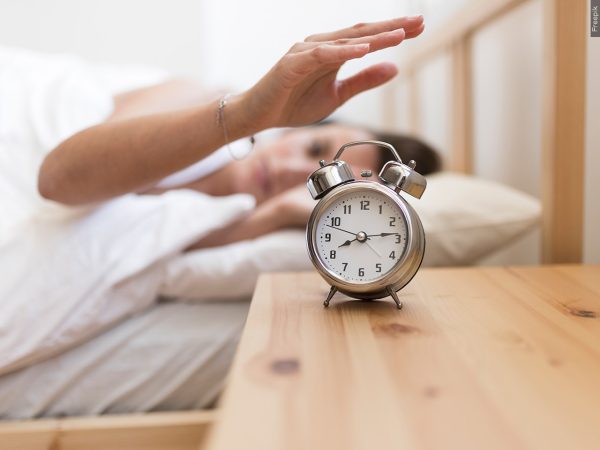
As the clocks spring forward an hour earlier this month, many students on college campuses are still fully preparing for the annual ritual of adjusting to daylight saving time. While the extra evening light is often celebrated, the effects on students’ sleep patterns, academic performance and overall well-being raise concerns among campus health professionals.
Daylight saving time kicked in at 2 a.m. on Sunday, March 9, forcing clocks ahead one hour. This change is intended to provide more evening daylight, encourage outdoor activities and reduce energy consumption.
However, studies suggest that the abrupt shift can disrupt circadian rhythms and lead to increased fatigue, particularly among college students who already struggle with sleep deprivation.
“The practice of springing the clocks ahead an hour started in 1918 as a World War I era measure but was repudiated in 1919 after farmers, a group commonly cited as a reason for the practice, rejected it,” said James Powel and Anthony Robledo, writers for USA TODAY.
With historical backgrounds, no wonder such an interesting practice was put into place – ultimately affecting people with their sleep schedules, similar to jet lag off of a vacation.
Sleep is vital for growing and healthy college students even with busy day-to-day schedules. The risk of mental health issues may increase with disrupted sleep schedules, which is a significant concern for college populations where mental health struggles are prevalent.
“I feel like the time change completely throws me off my rhythm,” said Anneliese Sandberg, a sophomore nursing major. “I’ve been so exhausted this week and putting registration week on daylight savings was probably the worst thing ever! I feel like I really struggle to adjust to daylight savings in both the spring and fall because I am very routine-based and the hour change makes me feel very thrown off.”
How we can respond is a call to action on campus. We should respond to these challenges by offering workshops on time management and self-care during the transition. Additionally, GCSU campus health services should promote resources for better sleep, and hygiene and encourage students to maintain regular sleep schedules and prioritize rest during the adjustment period.
America is one of the countries that participates in daylight savings, and most countries do not participate in it. Many Americans, including college students who need vital sleep to function,
keep in the social atmosphere that they do not want to change clocks twice a year just to signify a few extra hours of daylight.
The most interesting part is how the President plans to provide support in the effort to eliminate the practice.
“On Dec. 13, 2024, Trump posted on his social media site, Truth Social, The Republican Party will use its best efforts to eliminate Daylight Saving Time, which has a small but strong constituency, but shouldn’t!” said Chantelle Lee, a reporter at Time Magazine. “Daylight Saving Time is inconvenient, and very costly to our Nation. But more than a month into his presidency, Trump has yet to make any moves on the issue since his Truth Social post, and experts are a little unsure as to what changes could be coming.”
Unfortunately, Trump’s statement and how the public deals with the national event itself have something in common – they are inconsistent and waver with the decision to acknowledge Daylight Savings, or have it been a practice of the past.
Permanent daylight saving time would look something like this: we would advance our clocks an hour for the entire year, so the sun would look like it is rising and setting an hour later not only in the summer but also in the winter.
In the meantime, we have to think positively and appreciate the benefits that Daylight Savings brings us.
“The extra hours of daylight make the evening feel so much nicer and more productive,” Sandberg said. “In the winter, I have a harder time studying past sunset because it gets dark so early that it feels like bedtime even when it really is not. In the spring and summer, I feel like I can be productive for so much longer.”
As the debate surrounding daylight saving time continues at the national level, its effects on college campuses including GCSU reveal a complex reality. The balance between enjoying extra daylight and managing the consequences of lost sleep presents an ongoing challenge for students as well as staff and faculty.
Around this time five years ago, the COVID-19 pandemic swept all over the world as we came together in the community to stay safe healthwise. Now, we make another national decision to stay safe timewise, protecting our precious hours of light.
As we spring forward, it’s essential to recognize both the potential pleasures and pitfalls of the time change. For now, students should prepare to navigate the shifting hours while prioritizing
their health and well-being—because, in the fast-paced environment of college life, we want to savor all of the wonderful moments outside. How are you making the most of your daylight savings?

